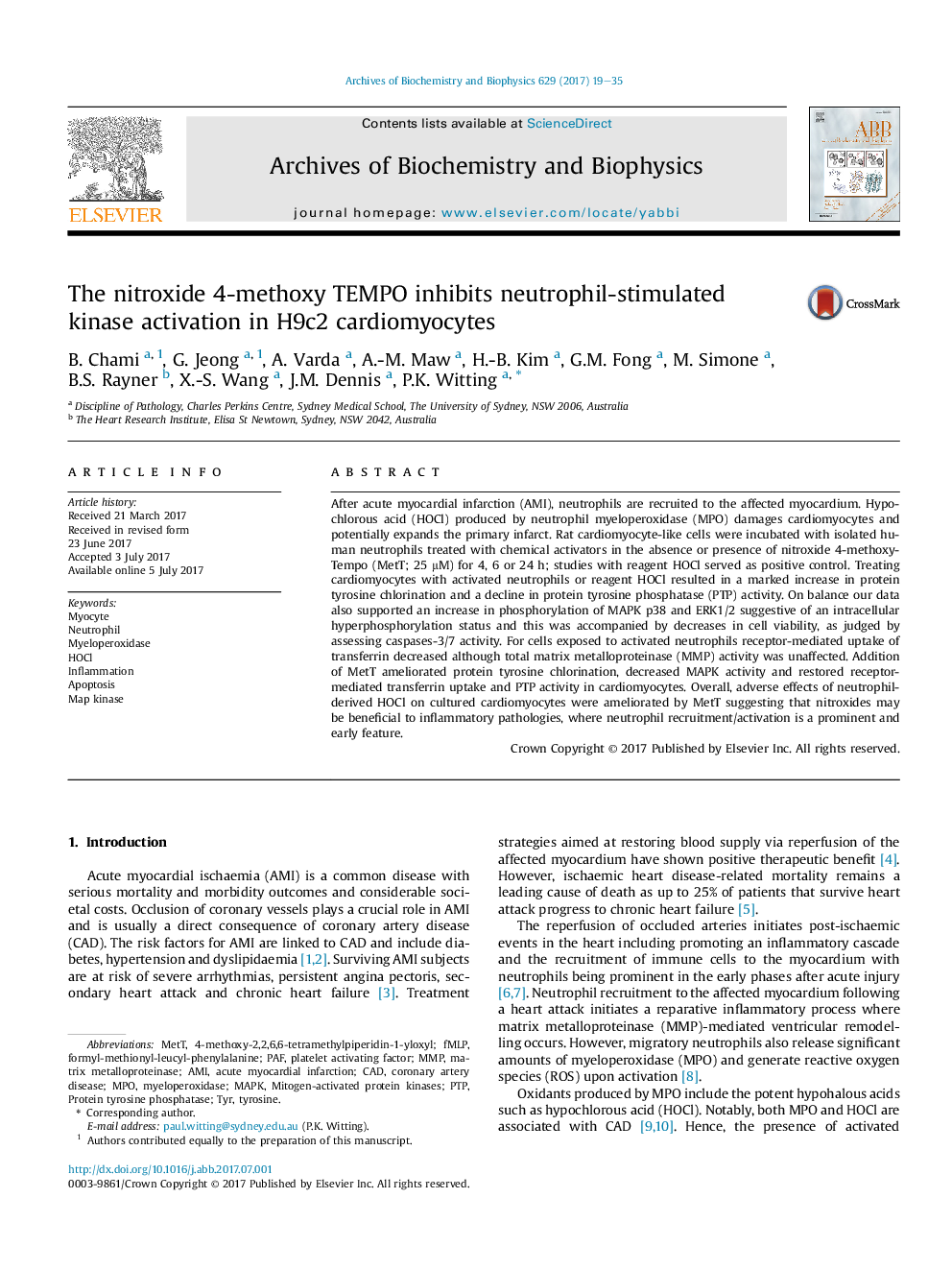| Article ID | Journal | Published Year | Pages | File Type |
|---|---|---|---|---|
| 5504345 | Archives of Biochemistry and Biophysics | 2017 | 17 Pages |
Abstract
After acute myocardial infarction (AMI), neutrophils are recruited to the affected myocardium. Hypochlorous acid (HOCl) produced by neutrophil myeloperoxidase (MPO) damages cardiomyocytes and potentially expands the primary infarct. Rat cardiomyocyte-like cells were incubated with isolated human neutrophils treated with chemical activators in the absence or presence of nitroxide 4-methoxy-Tempo (MetT; 25 μM) for 4, 6 or 24 h; studies with reagent HOCl served as positive control. Treating cardiomyocytes with activated neutrophils or reagent HOCl resulted in a marked increase in protein tyrosine chlorination and a decline in protein tyrosine phosphatase (PTP) activity. On balance our data also supported an increase in phosphorylation of MAPK p38 and ERK1/2 suggestive of an intracellular hyperphosphorylation status and this was accompanied by decreases in cell viability, as judged by assessing caspases-3/7 activity. For cells exposed to activated neutrophils receptor-mediated uptake of transferrin decreased although total matrix metalloproteinase (MMP) activity was unaffected. Addition of MetT ameliorated protein tyrosine chlorination, decreased MAPK activity and restored receptor-mediated transferrin uptake and PTP activity in cardiomyocytes. Overall, adverse effects of neutrophil-derived HOCl on cultured cardiomyocytes were ameliorated by MetT suggesting that nitroxides may be beneficial to inflammatory pathologies, where neutrophil recruitment/activation is a prominent and early feature.
Keywords
fMLPMMPPTPHOClAmIMPOMAPKinflammationcoronary artery diseaseTyrTyrosineApoptosisAcute myocardial infarctionCADPlatelet activating factorFormyl-methionyl-leucyl-phenylalaninematrix metalloproteinasemyeloperoxidasemyocyteneutrophilPAFProtein tyrosine phosphataseMAP kinasemitogen-activated protein kinases
Related Topics
Life Sciences
Biochemistry, Genetics and Molecular Biology
Biochemistry
Authors
B. Chami, G. Jeong, A. Varda, A.-M. Maw, H.-B. Kim, G.M. Fong, M. Simone, B.S. Rayner, X.-S. Wang, J.M. Dennis, P.K. Witting,
